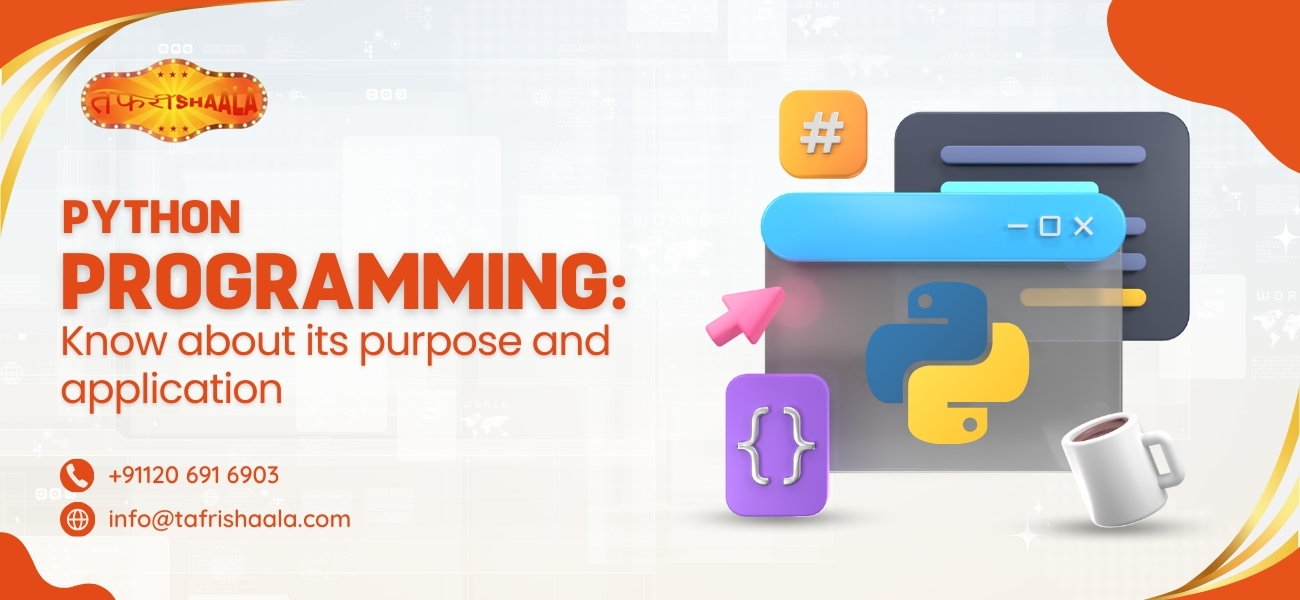Python Programming: Know about its purpose and application

Python is an interactive, object-oriented, and easy-to-use language that has obviously charmed developers, data scientists, and enthusiasts. Conceived in a design philosophy that emphasizes readability and simplicity, it is excellently positioned for both beginners and experienced designers. This article will look into the different ways one can apply Python, and through these classes, real-world projects will show just how such purposes can be achieved.
Beginners of Python: The Entrance into the World of Programming
Python has often been suggested for being an excellent language for beginners as it is much simpler. Basic concepts such as transformations, control systems, data types, and functions are easy to learn since the concept of newcomers can grasp it sooner. Flexible curriculum will enable beginners to invest more time in solving problems with no time being wasted over complicated word structures.
The commonly regular python tutorial for beginners that have been included are:
Syntax and semantics basics
Lists, dictionaries, and tuples – Data structures
Control flow mechanisms (loops, conditionals); Functional and modular design; Introduction to object-oriented programming (OOP).
Lessons at times give hands-on experience through projects and exercises, reinforcing concepts learned. Web development courses in Python are available over many forums, from basic to advanced, in covering different learning styles and frameworks.
Python in Web Development
The most amazing thing is the role of Python in web development. It provides a huge number of programs and libraries which enable the creation of complex, scalable web applications much easier. Two of the famous Python web frameworks are mentioned below:
Django: It is called the “battery-included” Python web framework. Django actually contains a number of inbuilt features for database management, user authentication, and much more. It advocates for rapid development and clean, practical design.
Flask: Lightweight and flexible, this microframework provides only what’s necessary for building web applications and liberates the developer to make new choices.
Large volumes of libraries and integrations with frontend technologies like HTML, CSS, and JavaScript make Python a powerhouse to build dynamic and interactive websites.
Real-World Usage of Python
The use of Python is not confined to only web development. Some of the key domains where the use of Python can be widely done are highlighted below.
1. Data Science and Machine Learning: Python is regarded as one of the significant languages in data science because of the availability of some powerful libraries like Panda, NumPy, and Scikit-learning. These libraries help in data analysis, transformation, and model development in machine learning.
2. Automation and Scripting: Python is very suitable for writing scripts for automating almost any common task. Ranging from file management, web scrapings can be entirely automated using Python scripts and thus save a lot of time.
3. Software Development: Python has been used in software applications: desktop apps, games, and enterprise solutions. Its vast standard library and third-party modules provide a set of tools for almost every possible development requirement.
4. Scientific computation: SciPy for scientific experiments and Matplotlib for statistical data analysis. The readability of Python, together with powerful means for data processing, makes it very attractive to researchers and engineers. Education and Research: Python finds extensive application in academia to teach programming, data analysis, and computational techniques. Approachability helps students grasp even complex concepts quickly.
Python provides an extremely strong and flexible platform; one can be greatly rewarded by using Python-one will gain the most valuable skills in today’s technological world.
In conclusion, Python programming has become a versatile and powerful tool across various industries, from web development to data science, artificial intelligence, and automation. Its simplicity, readability, and vast libraries make it an essential language for both beginners and experienced developers. Whether you’re looking to build websites, analyze data, or automate tasks, Python offers the flexibility and efficiency needed to achieve your goals. At Tafrishaala, you can learn Python and gain the skills required to leverage its capabilities for real-world applications.

